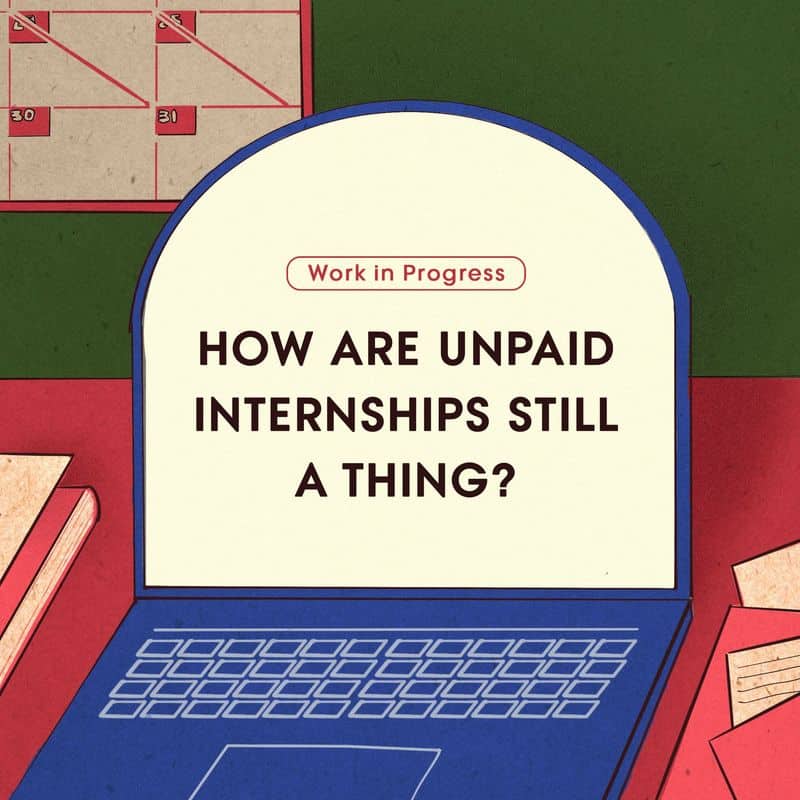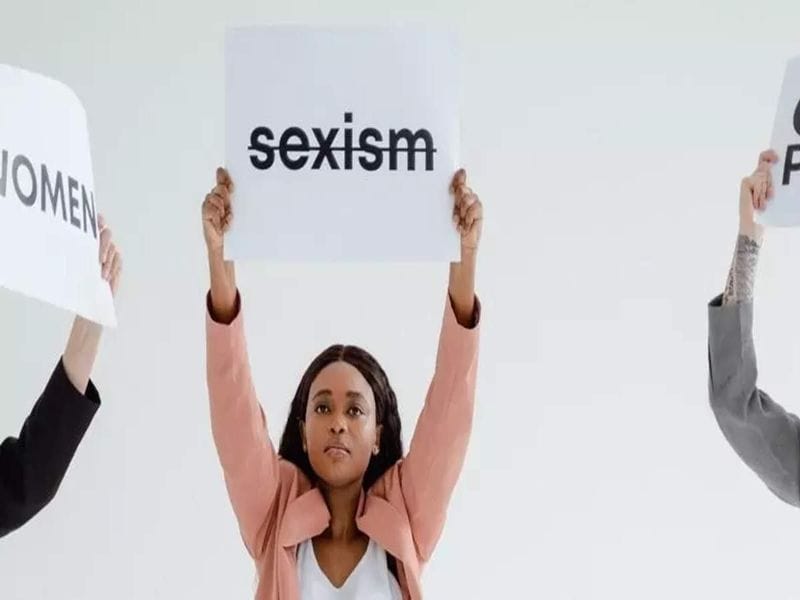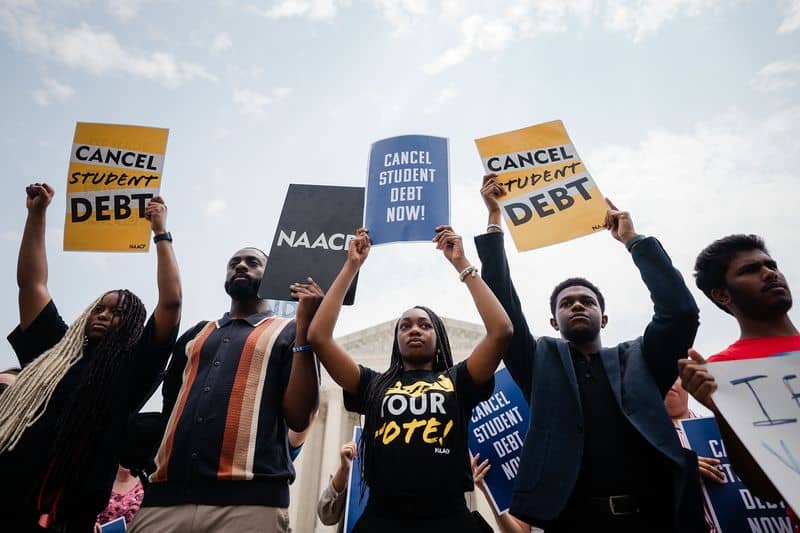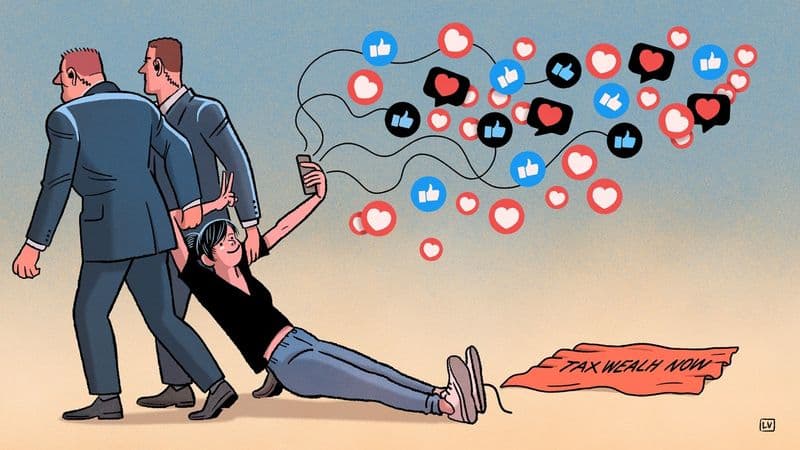In today’s rapidly changing world, generational gaps have become more apparent than ever. Gen Z and Millennials often view the world through a different lens compared to Boomers, leading to varying perceptions and sensitivities. While Boomers may find certain things trivial or harmless, younger generations might see them as offensive or outdated.
These differences are shaped by cultural shifts, technological advancements, and evolving societal norms. Understanding these generational disparities can foster empathy and improve communication across age groups. Here, we explore 13 specific things that tend to offend Gen Z and Millennials, but generally don’t bother Boomers.
1. Unpaid Internships

Unpaid internships are a source of contention. Gen Z and Millennials often view them as exploitative, feeling they undervalue skills and perpetuate inequality. Many believe that work should be compensated fairly, reflecting the value they bring. Boomers, however, may see unpaid internships as valuable learning experiences. Historically, these roles were gateways to jobs, providing essential networking opportunities. Yet, today’s economic challenges make unpaid roles less feasible for many young adults. Discussions around fair pay and equal opportunity continue to evolve, reflecting broader changes in workplace expectations.
2. Casual Sexism

Casual sexism in daily interactions often offends younger generations. They advocate for gender equality and inclusivity, challenging outdated norms that perpetuate stereotypes. Boomers may sometimes overlook such remarks, having grown up in different social climates. Gen Z and Millennials emphasize respectful language and behavior, seeking environments where everyone feels valued. This shift reflects broader societal changes aiming to create more equitable workplaces and communities. Educating others on the impact of language is a step towards fostering inclusivity. Addressing casual sexism requires continuous dialogue and commitment to change.
3. Work-Life Balance

Work-life balance is crucial for younger generations. They prioritize mental health and personal time, seeking flexible work arrangements. Boomers, on the other hand, grew up valuing hard work often at the expense of personal life. Gen Z and Millennials advocate for boundaries between work and personal time, believing it enhances productivity and well-being. This shift highlights changing attitudes towards work, with younger generations challenging traditional notions of success. As workplaces evolve, promoting a healthy work-life balance becomes a key factor in attracting and retaining talent.
4. Digital Communication

Digital communication is second nature to Gen Z and Millennials. They prefer texting and social media over phone calls, valuing quick and efficient interactions. Boomers, however, often favor phone calls, seeing them as more personal. This preference can lead to misunderstandings, as younger generations may view unsolicited calls as intrusive. Navigating digital communication preferences requires understanding and flexibility. As technology continues to shape communication, finding common ground becomes essential. Embracing diverse communication styles can enhance relationships across generations.
5. Environmental Negligence

Environmental negligence is a major concern for younger generations. They are passionate about sustainability and climate action, advocating for policies that protect the planet. Boomers may not always share the same urgency, having experienced different environmental priorities. Gen Z and Millennials emphasize the importance of addressing climate change, seeing it as a critical issue for their future. This generational divide highlights differing priorities and the need for collective action. Promoting environmental awareness and sustainable practices is crucial for bridging these gaps and ensuring a healthier planet.
6. Traditional Gender Roles

Traditional gender roles often clash with the views of younger generations. Gen Z and Millennials advocate for gender equality, challenging stereotypes and embracing diverse identities. Boomers, having grown up with defined roles, may not always understand this shift. Younger generations seek to dismantle rigid norms, promoting inclusivity and representation. This change reflects broader societal movements towards equality. Educating others on the importance of embracing diverse gender identities is vital for fostering understanding. Creating spaces where everyone feels accepted and valued is a shared goal.
7. Cultural Appropriation

Cultural appropriation is a sensitive topic for younger generations. They stress the importance of respecting and honoring cultural heritage, opposing its misuse. Boomers may not always recognize the nuances, having grown up in less culturally aware times. Gen Z and Millennials advocate for cultural appreciation over appropriation, urging others to understand the impact of their choices. This awareness fosters respect and inclusivity, promoting a deeper understanding of diverse cultures. Encouraging conversations on cultural sensitivity helps bridge generational gaps and enhances community harmony.
8. Political Correctness

Political correctness is embraced by younger generations, who prioritize inclusive language and respect. They see it as essential for creating welcoming environments. Boomers might view it as excessive, preferring frankness over perceived restriction. Gen Z and Millennials stress the importance of considering others’ feelings, seeing it as a step towards equality. This generational divide reflects broader societal changes in communication and empathy. Promoting respectful dialogue is key in bridging these differences. Encouraging awareness and understanding helps foster inclusive communities where everyone feels heard.
9. Student Debt

Student debt is a significant burden for younger generations. Gen Z and Millennials face rising tuition costs and financial pressures, leading to concerns about economic stability. Boomers, having experienced different educational landscapes, may not fully grasp the extent of this issue. Younger generations advocate for affordable education and financial reform, seeking solutions to alleviate debt. This challenge highlights economic disparities and the need for systemic change. Addressing student debt requires collaborative efforts to ensure future generations have access to education without financial strain.
10. Diversity and Inclusion

Diversity and inclusion are paramount for younger generations. They advocate for representation and equal opportunities, challenging homogeneity in various sectors. Boomers, having grown up in different social climates, might not prioritize these aspects as highly. Gen Z and Millennials emphasize the value of diverse perspectives, seeing them as essential for innovation and growth. This focus reflects broader societal movements towards equality and justice. Promoting diversity and inclusivity requires ongoing effort and commitment. Creating environments where everyone feels respected and valued benefits both individuals and organizations.
11. Mental Health Awareness

Mental health awareness is crucial for younger generations. Gen Z and Millennials prioritize mental well-being, advocating for open conversations and support. Boomers, having grown up with different stigmas, may not fully understand this emphasis. Younger generations seek to destigmatize mental health issues, promoting resources and acceptance. This shift highlights evolving attitudes towards mental wellness, reflecting broader societal changes. Encouraging mental health awareness fosters empathy and understanding, creating supportive environments. Addressing mental health requires collective efforts to ensure everyone has access to care and support.
12. Remote Work

Remote work is favored by younger generations, valuing flexibility and autonomy. Gen Z and Millennials appreciate the ability to work from anywhere, prioritizing work-life balance. Boomers, accustomed to traditional office settings, may question its effectiveness. This shift reflects changing attitudes towards work, with younger generations challenging conventional structures. Embracing remote work requires adaptability and trust, recognizing its potential to enhance productivity and satisfaction. As workplaces evolve, fostering environments that support diverse work preferences becomes essential. Promoting remote work benefits both employees and organizations.
13. Social Media Activism

Social media activism is a powerful tool for younger generations. Gen Z and Millennials use platforms to raise awareness and drive change, valuing its reach and immediacy. Boomers, less familiar with digital activism, might see it as superficial. Younger generations emphasize the impact of online campaigns, advocating for social justice and equality. This shift highlights the evolving landscape of activism, reflecting broader changes in how information is shared and movements are organized. Embracing social media activism requires understanding its potential and limitations, fostering meaningful engagement and impact.

Well, hello there!
My name is Jennifer. Besides being an orthodontist, I am a mother to 3 playful boys. In this motherhood journey, I can say I will never know everything. That’s why I always strive to read a lot, and that’s why I started writing about all the smithereens I came across so that you can have everything in one place! Enjoy and stay positive; you’ve got this!

